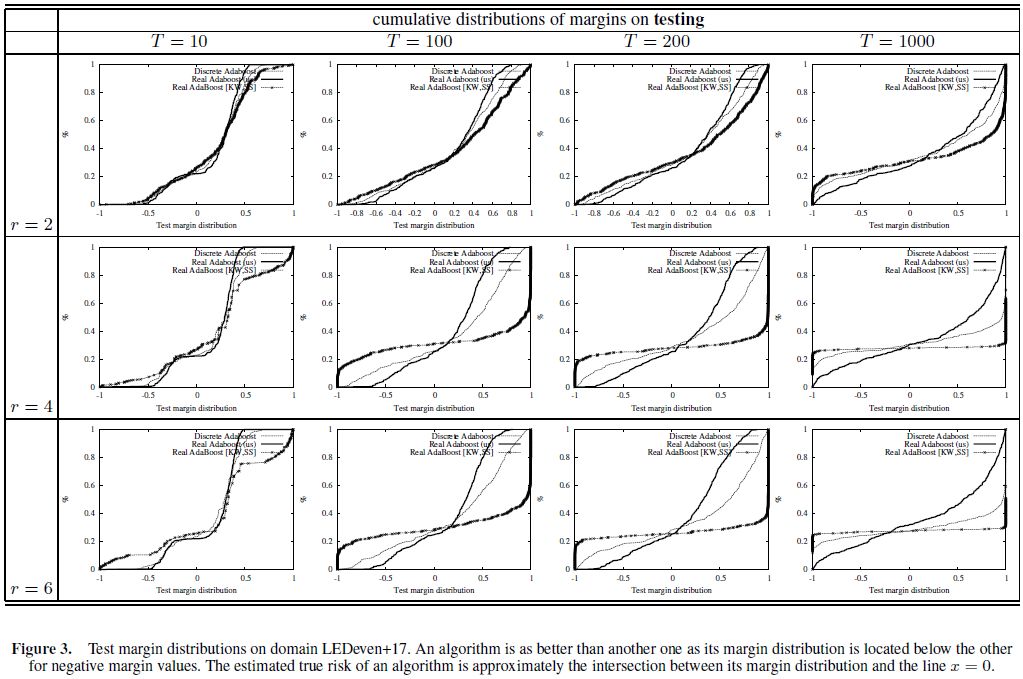Back to my home page.
A Real Generalization of Discrete AdaBoost
Richard Nock and Frank Nielsen
Abstract:
Scaling discrete AdaBoost to handle real-valued weak hypotheses has often been done under the auspices of convex optimization, but little is generally known from the original boosting model standpoint. We introduce a novel generalization of discrete AdaBoost which departs from this mainstream of algorithms. From the theoretical standpoint, it formally displays the original boosting property; furthermore, it brings interesting computational and numerical improvements that make it significantly easier to handle ``as is''. Conceptually speaking, it provides a new and appealing scaling to R of some well known facts about discrete (ada)boosting. Perhaps the most popular is an iterative weight modification mechanism, according to which examples have their weights decreased iff they receive the right class by the current discrete weak hypothesis. Our generalization to real values makes that decreasing weights affect only the examples on which the hypothesis' margin exceeds its average margin. Thus, while both properties coincide on the discrete case, examples that receive the right class can still be reweighted higher with real-valued weak hypotheses. From the experimental standpoint, our generalization displays the ability to produce low error formulas with particular cumulative margin distributions, and it provides a nice handling of those noisy domains that represent Achilles' heel for common Adaptive Boosting algorithms.
Download the PDF paper (7 pages, 4 figures, © Springer-Verlag 2006)
Download the Talk slides
(Best paper award of ECAI 2006, visit the conference home page)
BibTex entry:
@inproceedings{c-nn-radaboost-2006,
author = {Richard Nock and Frank Nielsen},
title = {A Real Generalization of Discrete AdaBoost},
booktitle = {Proceedings of the 17th Eureopean Conference on Artificial
Intelligence (ECAI)},
year = {2006}
}
The Author may publish his/her contribution on his/her personal Web page provided that he/she creates a link to the above mentioned volume of LNCS at the Springer-Verlag server
or to the LNCS series Homepage (URL: http://www.springer.de/comp/lncs/index.html) and that together with this electronic version it is clearly pointed out, by prominently adding "© Springer-Verlag", that the copyright for this contribution is held by Springer.

Last updated, May 2006.
